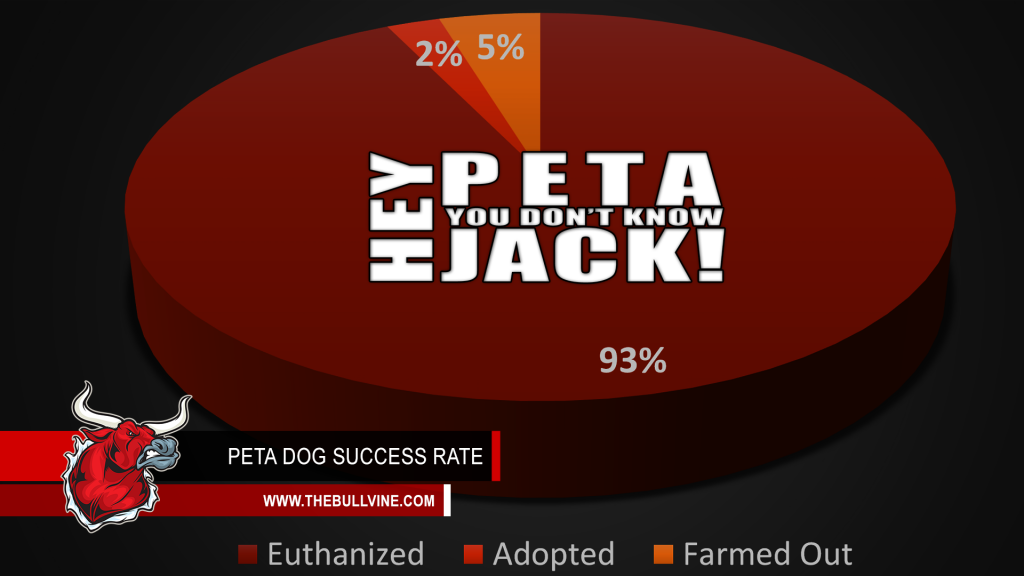Understand the reasons behind PETA’s attack on the Toronto Maple Leafs’ dairy sponsorship. Dive in for an in-depth examination of this borderline terrorist group and their hanus actions. Read more.

In a controversial move, PETA (People for the Ethical Treatment of Animals) has launched a campaign against the Toronto Maple Leafs, a beloved NHL team. At the core of this clash is the Maple Leafs’ sponsorship deal with Dairy Farmers of Ontario, which PETA claims significantly contributes to climate change. These claims are mired in controversy. PETA has a history of targeting high-profile organizations with aggressive campaigns, stirring public emotion and controversy. This campaign against the Toronto Maple Leafs raises questions about the environmental responsibility of the dairy industry and the ethical obligations of sports teams. However, the Maple Leafs, by supporting the Toronto Maple Leafs during this challenging time, have the potential to showcase their commitment to sustainability and environmental stewardship, offering a hopeful path forward.
The Controversial Legacy of PETA: High-Profile Activism and Provocative Tactics
People for the Ethical Treatment of Animals (PETA) has built a reputation for aggressive activism in animal rights since its founding in 1980. Known for high-profile and often polarizing campaigns, PETA draws public attention to animal cruelty issues through provocative tactics. Supporters argue that such methods are essential for change, whereas critics believe they undermine genuine advocacy. PETA’s commitment has sometimes led to legally dubious and even illegal actions, including civil disobedience, public disruptions, and property damage. One infamous campaign, “I’d Rather Go Naked Than Wear Fur,” involved activists protesting fur clothing by appearing nude in public. Although these actions attract media coverage, they often alienate potential supporters and provoke backlash.
PETA has targeted numerous companies and organizations, from fast-food giants to fashion brands, with aggressive campaigns, including boycotts, media stunts, and graphic footage from undercover investigations to expose alleged animal cruelty. While impactful, such methods raise ethical questions about how the footage is obtained. PETA’s extreme tactics have sometimes attracted legal repercussions and have led to associations with more militant factions within the animal rights movement, such as the Animal Liberation Front (ALF). The ALF has been involved in vandalism, arson, and other illegal activities for animal liberation. Although PETA officially disavows violence, its support for ALF individuals blurs the line between advocacy and extremism.
The Maple Leafs and Dairy: A Partnership that Fuels Community and Youth Development
The partnership between the Toronto Maple Leafs and their dairy sponsor goes beyond simple brand visibility for monetary support. This collaboration is vital for community outreach and youth education, focusing on the significance of nutrition for balanced growth and development. The dairy industry, known for its nutrient-rich products, leverages this alliance to advocate for healthy living. Financially, sponsorship is crucial, as it funds player development, enhances training facilities, and supports community initiatives. These funds are essential for maintaining the Maple Leafs’ competitive edge in the NHL.
Beyond financial support, this partnership is key to several community and educational programs led by the Maple Leafs. Initiatives like youth hockey camps and nutritional workshops educate young athletes about balanced diets. These programs feature nutritionist talks, interactive sessions on healthy eating, and educational materials highlighting the benefits of dairy products. In a time when childhood obesity and malnutrition are significant issues, dairy sponsorship offers crucial guidance for children and families on healthier dietary choices. It underscores the importance of nutrients like calcium and vitamin D in promoting bone health and physical development.
This dual focus on financial backing and community health education highlights the broader value of the sponsorship. Ultimately, it contributes to the community’s well-being and promotes a legacy of health and fitness among the youth, a testament to the Maple Leafs’ positive impact beyond the controversy.
Unpacking the Science: The Multi-Faceted Reality of Climate Change Beyond PETA’s Claims
Scientific data and expert opinions reveal a much more complex picture of climate change than PETA suggests. Leading climate scientists from the Intergovernmental Panel on Climate Change (IPCC) emphasize that fossil fuel combustion, deforestation, and industrial activities are the primary drivers. According to the IPCC, carbon dioxide (CO2) from burning coal, oil, and natural gas constitutes about 76% of global greenhouse gas emissions.
While methane (CH4) is a potent greenhouse gas, its sources are varied. Methane emissions come from natural processes, such as wetlands, enteric fermentation in livestock, and human activities like landfill operations and natural gas extraction. The dairy industry contributes to methane emissions but is not the predominant source. Research shows agricultural methane accounts for about 40% of human-induced methane emissions, with rice paddies and manure management also playing significant roles.
Sustainable practices within the dairy industry are evolving. Many farms are adopting methane digesters to convert livestock waste into renewable energy, reducing overall emissions. Dairy operations around the world are adapting to climate change through innovative practices.
Addressing food systems and environmental sustainability is essential. Scientific literature suggests integrated approaches that balance food enjoyment with climate impact reduction. Dairy, a nutrient-dense food, offers substantial health benefits and can be produced sustainably, contributing to balanced diets and food security without significantly driving climate change.
Contrary to PETA’s allegations, dairy remains a key part of sustainable agriculture. By focusing on technological advancements and eco-friendly practices, the dairy industry supports both nutritional needs and the ecological health of our planet.
Addressing PETA’s Assertion: A Nuanced Exploration of Climate Change Drivers Beyond Dairy
Addressing PETA’s assertion requires a deep dive into the complex factors influencing climate change. While methane emissions from dairy are notable, singling out dairy as the main culprit oversimplifies the issue. According to the FAO, livestock-related activities contribute approximately 14.5% of human-induced greenhouse gases. However, this pales compared to fossil fuel combustion, deforestation, and industrial processes.
Experts like Dijkstra, Bannink, and Bosma stress sustainable agricultural practices in mitigating emissions. Advances in feed composition, manure management, and grazing have significantly reduced dairy’s carbon footprint. For instance, methane inhibitors and dietary adjustments can cut emissions by up to 30%.
A holistic view acknowledges that energy production, industry, transportation, and built environments are the primary greenhouse gas sources, as noted by the IPCC. Addressing these is key to effective mitigation. The narrative that dairy is the primary driver neglects the more impactful contributors linked to fossil fuels.
We must also recognize the socio-economic and nutritional value of the dairy industry, especially in communities reliant on dairy for sustenance and economic stability. Sustainable models, like those at Clovercrest Farm, show that environmentally conscious dairy farming is achievable and beneficial in reducing climate impacts.
Targeting the dairy industry as the main antagonist diverts attention from more harmful contributors like fossil fuels and deforestation. A balanced approach, improving agricultural practices while tackling primary emission sources, is crucial for effective climate policies, and this perspective is essential to consider in the ongoing debate.
Navigating Controversy: The Maple Leafs Face Potential Fallout from PETA’s Dairy Sponsorship Attack
PETA’s campaign against the Toronto Maple Leafs’ dairy sponsorship is gaining traction, leading to potential repercussions for the team. This aggressive stance by PETA could tarnish the Maple Leafs’ reputation, casting a shadow over their image as community supporters. As the team is historically beloved for fostering youth development, any association with a scrutinized sponsor presents significant challenges. Sponsors might reconsider their partnerships, wary of controversy, which could result in financial strains and difficulties in securing future sponsorships. Additionally, fan perception could shift; as ethical and environmental awareness grows, the divide between PETA supporters and the traditional fan base may deepen, presenting a complex dynamic for the team.
A Unified Front: How the Dairy Industry and Toronto Maple Leafs Cultivate Community and Counteract Criticism
The dairy industry, a cornerstone of nutritional health and agriculture, has much to gain from its alliance with the Toronto Maple Leafs. This partnership provides the dairy sector a platform to highlight its commitment to quality and sustainability while strengthening community ties. Amidst PETA’s unwarranted criticism, the dairy industry must defend its role within the food system and its positive environmental initiatives. Standing by the Maple Leafs exemplifies the industry’s dedication to resilience and factual representation. By aligning with the team, dairy producers can promote credible scientific research and sustainable practices to debunk exaggerated claims linked to climate change. This sponsorship also underscores the economic synergy: the Leafs benefit from vital funding for youth programs and outreach, while the dairy sector garners visibility and loyalty. Solidarity, in the face of baseless accusations, is about preserving the integrity of industries that contribute fundamentally to societal well-being. The dairy industry’s support for the Maple Leafs should be unwavering, promoting community engagement, environmental stewardship, and economic stability against unfounded external pressures.
The Bottom Line
As we navigate PETA’s scrutiny of the Toronto Maple Leafs’ dairy sponsorship, we must base our judgments on facts and well-rounded perspectives. The claim that the dairy industry is the primary driver of climate change oversimplifies the complex factors contributing to global environmental challenges. We’ve examined PETA’s aggressive activism, the beneficial Maple Leafs-dairy partnership for community and youth development, and the scientific nuances challenging narrow views on climate change. To counteract PETA’s allegations, we need a united front, embracing dairy’s nutritional and economic importance and its role in local communities. The dairy industry, the Maple Leafs, and the broader community must rally to share accurate information and foster positive initiatives. Let’s focus on balanced, informed actions to sustain our environment and the communal spirit nurtured by these enduring partnerships.
Key Takeaways:
- PETA has targeted the Toronto Maple Leafs for their sponsorship ties with the dairy industry, alleging its significant role in climate change.
- The organization claims that dairy production is a leading cause of methane emissions, which they argue is a potent greenhouse gas contributing to global warming.
- Critics argue that PETA’s approach is overly aggressive and not supported by the broader scientific community’s understanding of climate change drivers.
- The Toronto Maple Leafs’ partnership with dairy brands supports community initiatives and youth development programs, showcasing a positive aspect of such sponsorships.
- The dairy industry is called to stand firm and support the Maple Leafs amidst PETA’s allegations, reinforcing the multifaceted roles these partnerships play in society.
Summary:
PETA has launched a campaign against the Toronto Maple Leafs over their sponsorship deal with Dairy Farmers of Ontario, claiming the partnership contributes to climate change. PETA’s controversial legacy is built on aggressive activism in animal rights since its founding in 1980. Supporters argue that such methods are essential for change, while critics believe they undermine genuine advocacy. The partnership between the Maple Leafs and their dairy sponsor goes beyond simple brand visibility for monetary support, as it is vital for community outreach and youth education, focusing on nutrition for balanced growth and development. The dairy industry leverages this alliance to advocate for healthy living. However, scientific data and expert opinions reveal a more complex picture of climate change, with leading climate scientists arguing that fossil fuel combustion, deforestation, and industrial activities are the primary drivers. Dairy remains a key part of sustainable agriculture, supporting both nutritional needs and ecological health.













